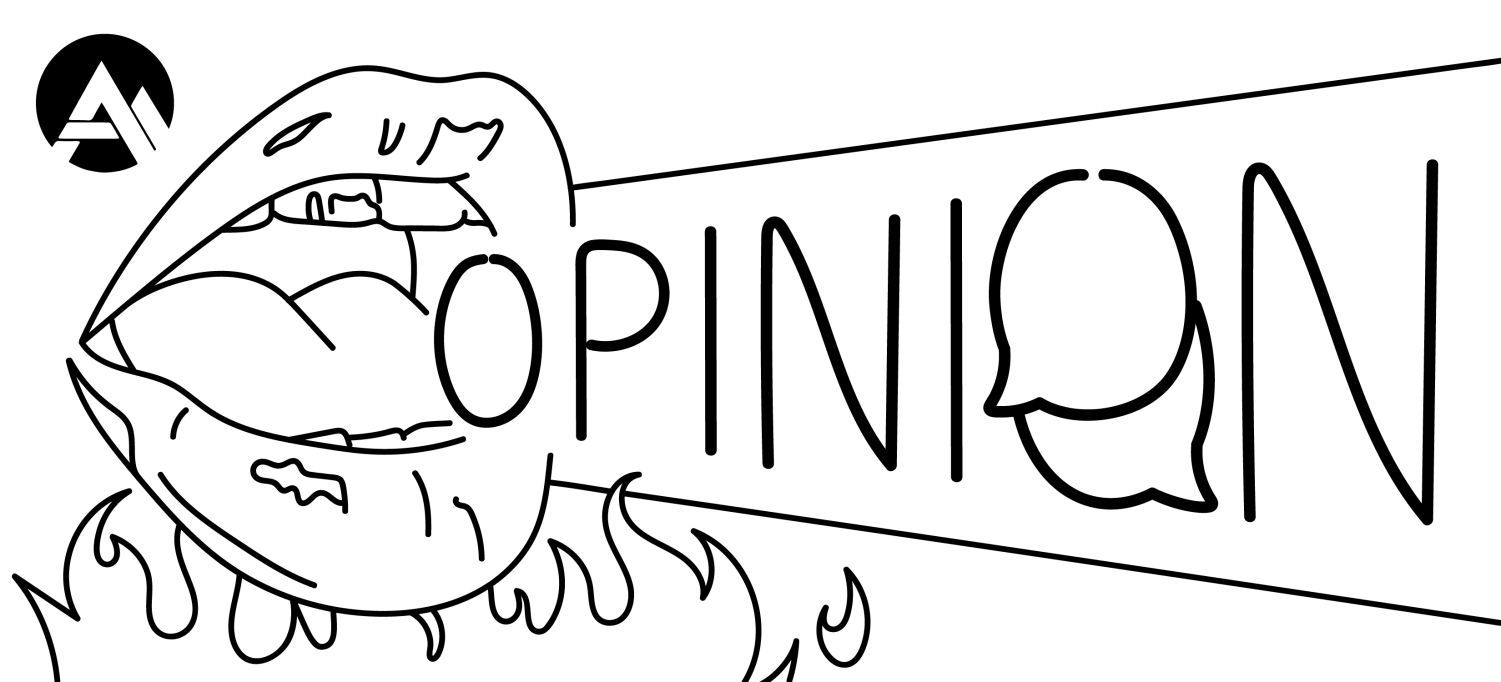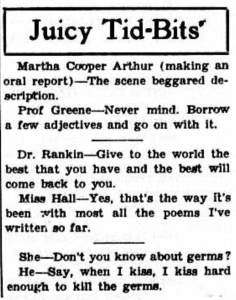OPINION: J.K. Rowling’s newest book is anything but magical
September 22, 2022
Renowned author J.K. Rowling recently published her new book,“The Ink Black Heart,” which features characters and plotlines many have pointed out as being disturbingly similar to Rowling’s own experiences being canceled on the internet over the past few years.
Whether you read the books as a young child, saw the movies in theaters or got annoyed at people on the playground shouting gibberish at one another, everyone and their mother has heard of Harry Potter in some way, shape or form. One of the highest grossing media franchises in the world, the Wizarding World and its creator, J. K. Rowling, have impacted the lives of millions of people across the globe. However, more people today tend to know Rowling for a different reason, that being her increasingly controversial opinions over the past few years. Discussion of Rowling’s problematic viewpoints has been rampant ever since early 2020, but lately they have resurged quite a bit in the wake of her newest book release: “The Ink Black Heart.”
Released Aug. 30, “The Ink Black Heart” is the sixth book in Rowling’s “Cormoran Strike” series of crime fiction novels, published under the pen name “Robert Galbraith.” The series revolves around detective Cormoran Strike and his partner Robin Ellacott as they work together solving various crime-related mysteries. In this newest story, Strike and Ellacott find themselves tasked with investigating the murder of Edie Ledwell, creator of a popular YouTube cartoon called The Ink Black Heart. In one of the opening chapters, Ledwell bursts into the detective agency asking Ellacott to track down the identity of a problematic fan who has turned the fanbase of The Ink Black Heart against her, and has harassed her online via inciting the hatred of internet social justice warriors against her for alleged racist, ableist and transphobic remarks and ideas present in and around the YouTube cartoon. Soon after leaving the detective agency, an unknown assailant stabs Ledwell to death in a nearby cemetery, seemingly as a result of internet trolls and social justice warriors targeting her for her problematic viewpoints. Sound familiar? It should.
On June 6, 2020, Rowling published a series of tweets containing several transphobic viewpoints, which, along with a lengthy forum post from Rowling herself attempting to defend her stance on the transgender community, began digging a hole the author would be unable to climb out of. Soon after these tweets, “Harry Potter” series actors David Radcliffe, Emma Watson and Rupert Grint, all released statements condemning Rowling’s remarks about the transgender community. Since then, Rowling’s reputation has been completely upended, going from someone who once lit up the worlds of children, to someone who has spread viewpoints that have harmed the lives of many of those same children who grew up with her stories.
From just that small summary of both scenarios, it is clear there are several similarities between J.K. Rowling and Edie Ledwell. First, both are creators of a hugely popular series, and second, both have been turned against by their respective fanbases after making insensitive comments regarding certain minority groups. But anyone could see the similarities between the two just by reading a summary of “The Ink Black Heart.”
After reading over 1,000 pages of the novel, the similarities between Ledwell and Rowling become even more evident as the story progresses. Yet what’s even more troubling is the content of the novel itself seems to paint Ledwell — who, for all intents and purposes, may as well be a Rowling self-insert character — as a tragic figure, with people on the internet defending social justice and holding her accountable painted as unethical haters trying to orchestrate an unfounded hate campaign against her.
For one, there are multiple instances in the novel where characters acknowledge the problematic elements present in Ledwell’s cartoon, yet they also assert the idea that she shouldn’t be blamed for it. On page 543, when describing a part of the cartoon that involves a worm that is specifically described using the term “hermaphrodite,” the character Tim Ashcroft says “‘Edie had had a difficult childhood. You couldn’t blame her for being — not ignorant, but …’”, seemingly using her difficult childhood as an excuse for the problematic aspects of the work she created. At another point in the novel, around page 482, the character Zoe Haigh says “‘… people were ’orrible to ’er online … I never thought there were nuthin’ wrong with it, … I read what people were sayin’ … I wish I ’adn’t,’” who from the perspective of Rowling as a writer, could be meant to endear the reader to both Haigh and Ledwell, aka Rowling’s surrogate character.
Haigh as a character is also interesting, as she seems to almost be a Ledwell apologist. She still chooses to support the cartoon, and indirectly Ledwell herself, despite her death, despite the many problematic elements. While characters like Haigh who stick by Ledwell are portrayed in a more positive and sympathetic light, those who stand against her and stick up for social justice are given the exact opposite treatment.
On the opposite end of the spectrum from characters like Haigh, one of the more prominent elements present in the novel is a blog titled The Pen of Justice, which focuses on problematic aspects of media and calls them out for the world to see. About a quarter of the way through the novel, Rowling showcases a section from one of the posts on The Pen of Justice blog, titled “Why The Ink Black Heart Is Seriously Ableist and Why That Should Trouble You.” Some of the points made in the post are very telling of the kind of YouTube show The Ink Black Heart is, saying “From Harty’s regular palpitations to bones dropping randomly off the Wyrdy-Grobs’ skeletons, we’re invited to laugh at the strangeness of imperfect bodies. Sick minds fare no better: Paperwhite’s depression and anorexia and Drek’s arguably manic-depressive episodes are likewise mocked.” The Pen of Justice’s points about the cartoon’s problematic elements are specific and scathing, and from the perspective of a creator, these points should be extremely important to the creators of a show like this, especially when the primary audience of the show is people who have physical or mental disabilities and struggles.
While in a vacuum, this article from The Pen of Justice makes a lot of good points, the way the rest of the story treats it removes any and all credibility it could have. In particular, the writer of The Pen of Justice is one of the primary suspects for Ledwell’s murder throughout most of the novel’s length, and though they are eventually proven innocent on the charge of murder, they are also shown to be a digital pedophile, removing any shred of credibility they could have had. With Rowling clearly portraying fans in a positive light and critics in a negative one, it is clear that, to a certain extent, Rowling has learned nothing from her experiences on the internet over the past few years.
But how does Rowling herself feel about the parallels that have been drawn between her and her newest novel? In an interview with Graham Norton, Rowling claimed that “I should make it really clear after some of the things that have happened the last year that this is not depicting … the first draft of the book was finished at the point where certain things happened” essentially claiming any and all similarities between the scenario of the novel and her own life are completely coincidental. It’s funny that she attributes these similarities to coincidence, as that seems to be a fallback that Rowling uses frequently, as she did when confronted with the history of her pen name “Robert Galbraith.” Many have pointed out that the pen name bears a striking resemblance to the name Robert Galbraith Heath, who was a 20th century psychiatrist who, among other things, created the abhorrent process we now know as gay conversion therapy.
Given Rowling’s previous controversies with the LGBTQ+ community, it is definitely suspicious her pen name has such an on-the-nose resemblance to someone with similar viewpoints, which is why it is odd that Rowling once again defaulted to the coincidence defense again, with her spokesperson saying in an interview with Newsweek that “J.K. Rowling wasn’t aware of Robert Galbraith Heath when choosing the pseudonym for her crime novels,” once again citing the similarity as a coincidence. Rowling is no stranger to problematic elements in her work, as is clear with characters like Cho Chang and the depiction of the goblins in Harry Potter, which Rowling has been conveniently silent about over the years despite being called out on it numerous times.
Even putting aside the many problematic aspects of “The Ink Black Heart,” the story itself just isn’t that good. The main characters are extremely unlikable, the portrayal of internet discourse is laughably one-note and the resolution to the murder mystery is, quite frankly, one of the worst endings I’ve ever seen in any piece of media. Needless to say, don’t waste your time or money on “The Ink Black Heart.”
The bottom line is J.K. Rowling needs to stop relying on coincidences and ignorance in order to make a quick cash grab, start acknowledging the reality of her own situation and the world around her, and realize that not everything is as black and white as “The Ink Black Heart” would lead one to believe.













BHAVIK • Apr 16, 2023 at 12:58 am
This is a very biased article. While i do agree with some aspects of critique. The fact that the book is not good is simply wrong. If you are doing a book review please stick to the book and focus on the originality of the storyline no matter where it is inspired from or how true it is. If you read the book in vaccum. it is brilliant and probably her best work since HP
Erin • Oct 20, 2022 at 7:07 am
This article is quite unfair. Rowling’s characters are usually a combination of traits, some traits are sympathetic, some decidedly are not. In the case of the Ink Black Heart cartoon, we don’t ever get to “see” the cartoon within the larger story in order to have much of an idea what the content was like. What we do know is that members of the fandom were investigated specifically because their online presence was critical of the author. We can also infer that the criticisms they made were irrational and chosen, not because they were valid, but to manipulate others in the fictional fandom (mostly comprised of young impressionable and often imbalanced people) to achieve a self serving agenda. The people being investigated in the story are all internet trolls and one of them is a murderer. A reasonable person could easily infer from the novel that the content of The Ink Black Heart had nothing to do with trans issues, ableism, or any of the other numerous criticisms made up by the trolls, but was just, as we’re told, a dark stoner fantasy, beautifully illustrated, about a graveyard in which a disembodied black heart tries to become better than his body was in life and find love after death. The premise of the cartoon is darkly funny and from it a reasonable person can infer, as I’ve said, that the trolls in the novel are making up motivations that don’t exist. The irony is that the same thing keeps happening in opinion pieces about the novel itself. It’s kind of surreal.
Adair • Sep 23, 2022 at 4:46 pm
I couldn’t disagree more. I thought the book was fantastic, and I’ve been an avid fan of the series since the first book came out. There is a lot to unpack in this article, but I think it important to remember that we often see what we want to see in any piece of art/writing/media. Many of the issues posited in the book are not given clear resolutions or answers – Rowling leaves a lot of gray area, and doesn’t tell readers how to explicitly feel. Regardless, as a piece of crime thriller literature, I found “The Ink Black Heart” hugely entertaining, and I would have been happy had it been even longer!